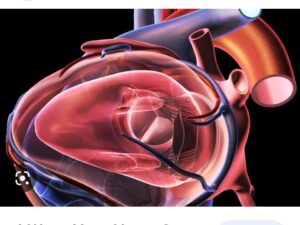
According to Healthline, The heart is an essential organ that works tirelessly to pump blood to every part of the body. It is vital to take care of this organ as any dysfunction can lead to life-threatening conditions such as heart attacks, strokes, and heart failure. However, it can be challenging to know if your heart is working correctly, but certain signs can indicate that it is in good condition.
One of the most noticeable signs that your heart is working well is when you have a steady and regular heartbeat. A normal resting heart rate should be between 60 and 100 beats per minute. If you notice that your heart rate is consistently outside of this range, it could be a sign of an underlying condition such as arrhythmia or heart disease. A consistently low heart rate (bradycardia) or a consistently high heart rate (tachycardia) should be checked by a medical professional.
Another sign that your heart is functioning well is when you have good blood pressure levels. Normal blood pressure is around 120/80 mmHg, and consistently high blood pressure (hypertension) can lead to serious heart conditions such as stroke, heart attack, and heart failure. However, if your blood pressure is consistently low, it could also be a sign of an underlying condition and should be checked by a medical professional.
Healthy eating is crucial in maintaining a healthy heart. Some foods can help reduce the risk of heart disease and promote good heart health. Foods rich in omega-3 fatty acids such as salmon, tuna, and nuts are great for heart health. These fatty acids can help reduce inflammation in the body and lower triglyceride levels, which can help prevent heart disease.
Leafy green vegetables like spinach and kale are also great for heart health. They contain nitrates that can help relax blood vessels and improve blood flow. Additionally, they are rich in antioxidants that can help reduce inflammation and oxidative stress, which can also improve heart health.
Fruits such as berries, avocados, and citrus fruits are also great for the heart. Berries are rich in flavonoids, which can help improve heart health by reducing inflammation and improving blood flow. Avocados contain healthy fats that can help lower cholesterol levels, while citrus fruits are rich in vitamin C, which can help reduce the risk of heart disease.
In conclusion, taking care of your heart is essential, and certain signs can indicate that it is in good condition. These signs include a regular heartbeat and good blood pressure levels. Eating a healthy diet rich in omega-3 fatty acids, leafy green vegetables, and fruits can also help maintain a healthy heart. Remember to consult a medical professional if you notice any changes in your heart rate or blood pressure levels, as they could be signs of an underlying condition









